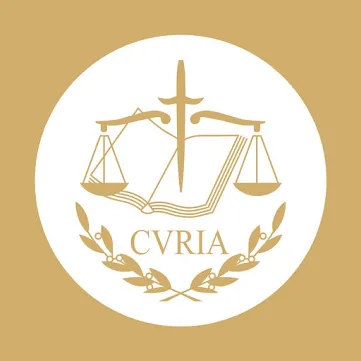Tuesday 5th June 2018
Judgment in Case C-673/16 Coman
(Same sex marriage – family reunification – discrimination)
Mr Coman, a Romanian national, and Mr Hamilton, an American national, married in Brussels in November 2010. Following the marriage, Mr Coman contacted the Romanian authorities seeking a residence permit for his spouse under the Free Movement Directive (Directive 2004/38). The Romanian authorities informed him that ‘under national law relating to immigration and other relevant provisions, an extension of a temporary residence permit for the American citizen may not be granted for the purposes of family reunification.’ This was essentially because Romanian national legislation prohibits marriage between persons of the same sex and provides that marriages contracted abroad between persons of the same sex are not to be recognised in Romania.
Mr Coman and Mr Hamilton consider this decision to be discriminatory on the grounds of sexual orientation and have challenged it before the Romanian courts.
The Romanian Constitutional Court asks the Court of Justice whether a non-EU spouse of an EU citizen, where the couple has married in another Member State, should be regarded as a spouse, or other eligible family member, within the meaning of the Directive and can therefore claim a right of residence.
There will be a press release for this case.
Tuesday 5th June 2018
Judgment in Case C-210/16 Wirtschaftsakademie Schleswig-Holstein
(Facebook – data protection – user liability)
Wirtschaftsakademie, a private education company, advertises educational programmes, among other things, through a fan page on Facebook Ireland. Operators of fan pages on Facebook can receive anonymous statistical information about users via the ‘Facebook Insights’ tool. The statistics are gathered when the fan page is accessed by the user via Facebook by storing at least one cookie on the user’s hard drive. The user is not informed of the storage and function of this cookie or the subsequent data processing.
The Landeszentrum, the German data protection authority, ordered Wirtschaftsakademie to deactivate the fan page on the basis that it breached data protection laws. The Wirtschaftsakademie appealed against this decision. Wirtschaftsakademie argues that it is not a data protection controller and therefore has no means of designing, influencing or controlling the fan page.
The Bundesverwaltungsgericht, German Federal Administrative Court, asks the Court of Justice to clarify the scope of the Data Protection Directive (95/46). Specifically, it asks whether Wirtschaftsakademie, as the operator of the fan page, has a data protection responsibility. It also seeks clarification regarding the scope of the Landeszentrum’s power, given that Facebook Ireland is solely responsible for the collection and processing of data.
There will be a press release for this case.
Tuesday 5th June 2018
Opinion in Case C-73/17 France v Parliament
(EU Parliament – seat of the institutions – plenary sessions)
France seeks the annulment of four acts adopted by the European Parliament in its exercise of its budgetary powers during the additional plenary sessions held on 30 November and 1 December 2016 in Brussels. France considers that these acts breach the protocols on the determination of the seats of the EU institutions. It follows from the protocols and the case-law of the Court that the European Parliament cannot exercise its budgetary powers in additional plenary sessions held in Brussels, but must exercise them in full plenary sessions held in Strasbourg. The French Government does not, however, dispute the purpose or contents of those acts and consider that the legal effects of those acts should be maintained until the adoption of a new act compatible with EU law, in order to ensure the continuity of the European public service.
There will be a press release for this case.
Background Documents Case C-73/17
Tuesday 5th June 2018
Judgment in Case T-111/16 Prada v EUIPO
(EU trademark – Prada – THE RICH PRADA)
In 2011, The Rich Prada International PT filed an application for registration of ”THE RICH PRADA” as an EU trademark. Prada SA filed a notice of opposition based on, amongst other things, the earlier rights which had been the subject of genuine and legitimate use in Germany, France, Italy and the UK, for marks including the word mark
image010.png@01D3F90B.5176C110″>.
EUIPO rejected the opposition in part and held that the wordmark applied for could be registered in respect of goods including, amongst other things, foodstuffs, beverages, advertising, retail space, education and medical services. EUIPO concluded that a likelihood of confusion between the marks for such goods could not be upheld due to the dissimilarity between the goods and services covered by the marks. However, it considered that the mark could not be registered for goods and services including, retail services, clothing, entertainment, services for providing food and drink, and hygiene and beauty care.
Prada has brought an action for annulment of this decision before the General Court.
Background Documents Case T-111/16
Tuesday 5th June 2018
Hearing in Case C-378/17 The Minister for Justice and Equality and the Commissioner of the Garda Síochána
(Equality law – jurisdiction – effective remedy)
Mr Boyle, Mr Cotter and Mr Fitzpatrick brought a complaint before the Workplace Relations Commission (at the time the Equality Tribunal) against the national police force (An Garda Síochána) regarding the force’s maximum age for recruitment.
The Garda Síochána (Admissions and Appointment) Regulations 2004 S.I. No. 749 of 2004 provide that the police may not admit a person unless he is ”at least 18 years but under 35 years of age”.
The men were all above the maximum age and therefore treated as being disqualified from a process intended to recruit new members. They considered this to constitute unlawful discrimination contrary to the Equal Treatment Directive (2000/78) and the implementing national legislation.
The Minister for Justice and Equality argued that the Equality Tribunal (now the Commission) did not have jurisdiction to hear the complaint. This was on the basis that, under the Irish Constitution, only courts have jurisdiction to disapply a provision of national legislation, such as the Regulations imposing the maximum age requirement for recruitment to the police force.
The Commission takes the view that since it is the body established under Irish law to enforce national and European employment equality legislation, it must, as a matter of EU law, be taken to have all the necessary powers to give effect to its obligations. The Minister argues that what national law does is to define the tribunal or court which has jurisdiction to deal with different types of breaches of that legislation. National law therefore confers jurisdiction on many equality cases on the Commission, but in a limited area (i.e. cases involving the potential necessity to disapply national legislation) confines jurisdiction to the courts.
The Supreme Court, Ireland, asks whether such a division is compatible with EU law or whether a body, such as the Commission, must have the power to disapply national equality legislation which is incompatible with EU law in order that an effective remedy is provided.
Background Documents Case C-378/17
Wednesday 6th June 2018
Hearing in Case C-322/17 Bogatu
(Child benefit – coordination of social security systems – entitlement)
Mr Bogatu is a Romanian national. He moved to Ireland in 2003 and worked as a HGV driver in the State until February 2009. Romania became an EU Member State in 2007, as a consequence of which Mr Bogatu was entitled to claim certain welfare benefits, including child benefits. Mr Bogatu has two children, both of whom reside in Romania.
In February 2009, Mr Bogatu applied for a job seeker’s benefit (a contributory benefit) which was paid to him until the end of his entitlement in March 2010, following which he received a jobseeker’s allowance, a non-contributory benefit, until January 2013.
While Mr Bogatu would have been entitled to apply for child benefit from the date of Romania’s accession to the EU, he did not apply until January 2009. In response to his application, the Minister for Social Protection advised that Mr Bogatu was only entitled to receive payment of child benefit for the period during which he was in receipt of a contributory benefit (i.e. the jobseeker’s benefit). The Minister considered that requirement was the correct interpretation of the EU rules on the coordination of social security systems (Regulation 883/2004).
The High Court, Ireland, asks the Court of Justice whether the Regulation should be interpreted as meaning that a person is only eligible for ”family benefit” is he is employed, self-employed or in receipt of cash benefits. If so, the High Court asks whether the reference to ”cash benefits” means only the period during which a person is actually in receipt of cash benefits.
Background Documents Case C-322/17
Thursday 7th June 2018
Judgment in Case C-44/17 The Scotch Whisky Association
(Protected designation of origin – Scotch whisky – ”glen”)
This is a preliminary reference following a case brought by the Scotch Whisky Association against a German whisky producer. The German producer named his whisky ”Glen Buchenbach”. Scotch Whisky has protected EU status, which prevents foreign producers from selling versions of the product that have no link to their place of origin. The Scotch Whisky Association asserts that the use of the word ”glen” indicates that the whisky comes from Scotland, in infringement of the protected status. The referring German court essentially seeks clarification regarding the type of connection that there must be between a product and a word/other factor in order for there to be an infringement of EU protected status.
There will be a press release for this case.
Tuesday 12th June 2018
Judgment in Case C-163/16 Louboutin and Christian Louboutin
(Trade mark – notion of ‘shape’ – coloured sole)
In this case, the Rechtbank Den Haag (District Court, the Hague) asks the Court of Justice for clarification of the notion of ‘shape’ for three-dimensional products under the Trade Marks Directive (2008/95/EC). Specifically, the Court is asked whether ‘shape’ is limited to the three-dimensional properties of the goods, such as their contours, measurements and volumes, or does it include other (non-three dimensional) properties of the goods, such as their colour.
The French designer, Louboutin, had a Benelux trade mark for the specific bright-red colour used on the entire surface of the outsole of the shoes that he designs. The description of the mark was that the colour red applied to the sole of a shoe as reproduced (the shape of the shoe does not form part of the mark but is intended to demonstrate the positioning of the mark).
image011.png@01D3F90B.5176C110″ alt=“index“>
In 2012, Van Haren, a retail shoe shop operated in the Netherlands, launched the sale of its ”Fifth Avenue by Halle Berry” line of women’s high-heel shoes with a bright-red outsole. Louboutin claimed this shoe infringed its trade mark.
In April 2013, the District Court of The Hague awarded Louboutin a preliminary injunction against Van Haren. That court considered that the red sole had not been used solely for decorative purposes but the mark was used in a consistent and sustainable way and the public therefore identified the red sole mark with a certain designer (Louboutin).
Van Haren appealed this decision, arguing that the mark should not have been registered since signs consisting exclusively of the shape which gives substantial value to the goods cannot be registered as a mark under Directive 2008/95. It is in this context that the Dutch Court asks for clarification on the notion of ‘shape’ under the Directive.
On 6 February 2018, Advocate General Szpunar gave his Opinion in the case, following reassignment of the case to the Grand Chamber. He considered that the prohibition on trademarks consisting exclusively of ‘the shape which gives substantial value to the goods’ may also apply to a sign combining shape and colour. The reputation of the mark or its proprietor cannot be taken into account when determining whether the shape gives substantial value to the goods.
There will be a press release for this case.
Background Documents Case C-163/16
Thursday 14th June 2018
Judgment in Case C-458/17 P Rami Makhlouf v Council
(Restrictive measures – Syria – Cousin of Bashar al-Assad)
Since 2011, Mr Rami Maklouf, a business man operating in Syria, has been subject to restrictive measures adopted against Syria. The measures prevent Mr Maklouf from entering or transiting through the territory on the European Union and freeze his economic funds.
The restrictive measures were imposed on the following grounds: ”Leading business man operating in Syria with interests in the telecommunications, financial services, transport and property sectors; he has financial interest in and/or holds senior and executive positions in Syriatel, the leading mobile telephone operator in Syria, the investment funds Al Mashreq, Bena Properties and Cham Holding. He furnishes financing and support to the Syrian regime, through his business interests. He is an influential member of the Makhlouf family and closely connected to the Assad family; cousin of President Bashar al-Assad.”
Mr Makhlouf applied to the General Court to annul the continued imposition of those restrictive measures for the period from 29 May 2016 to 31 May 2017. On 18 May 2017 the General Court confirmed the measures imposed upon Mr Makhlouf (see Press Release 55/17). Mr Makhlouf has brought an appeal against that judgment before the Court of Justice.
There will be a press release for this case.
Background Documents Case C-458/17
Zdroj: CVRIA


















